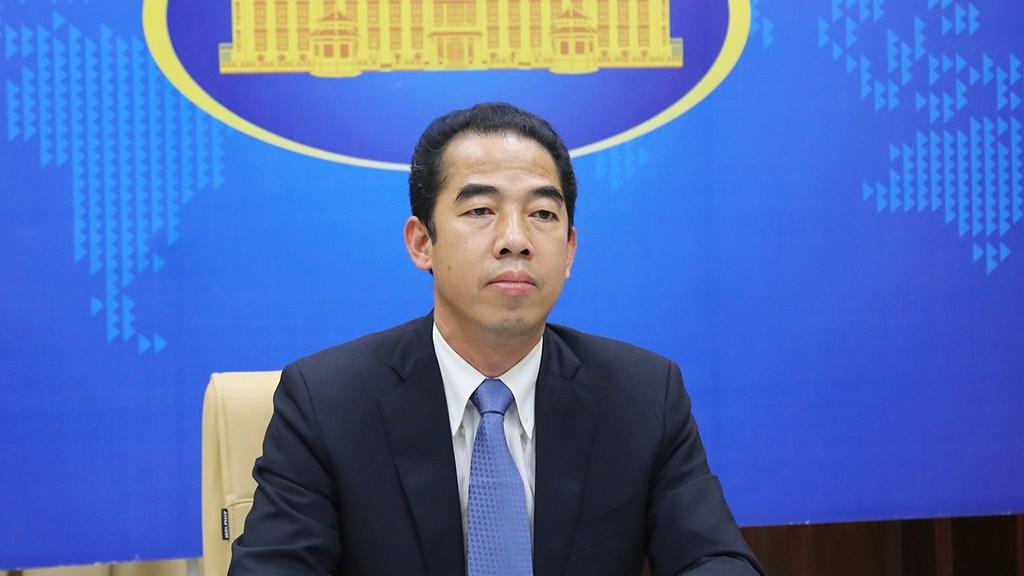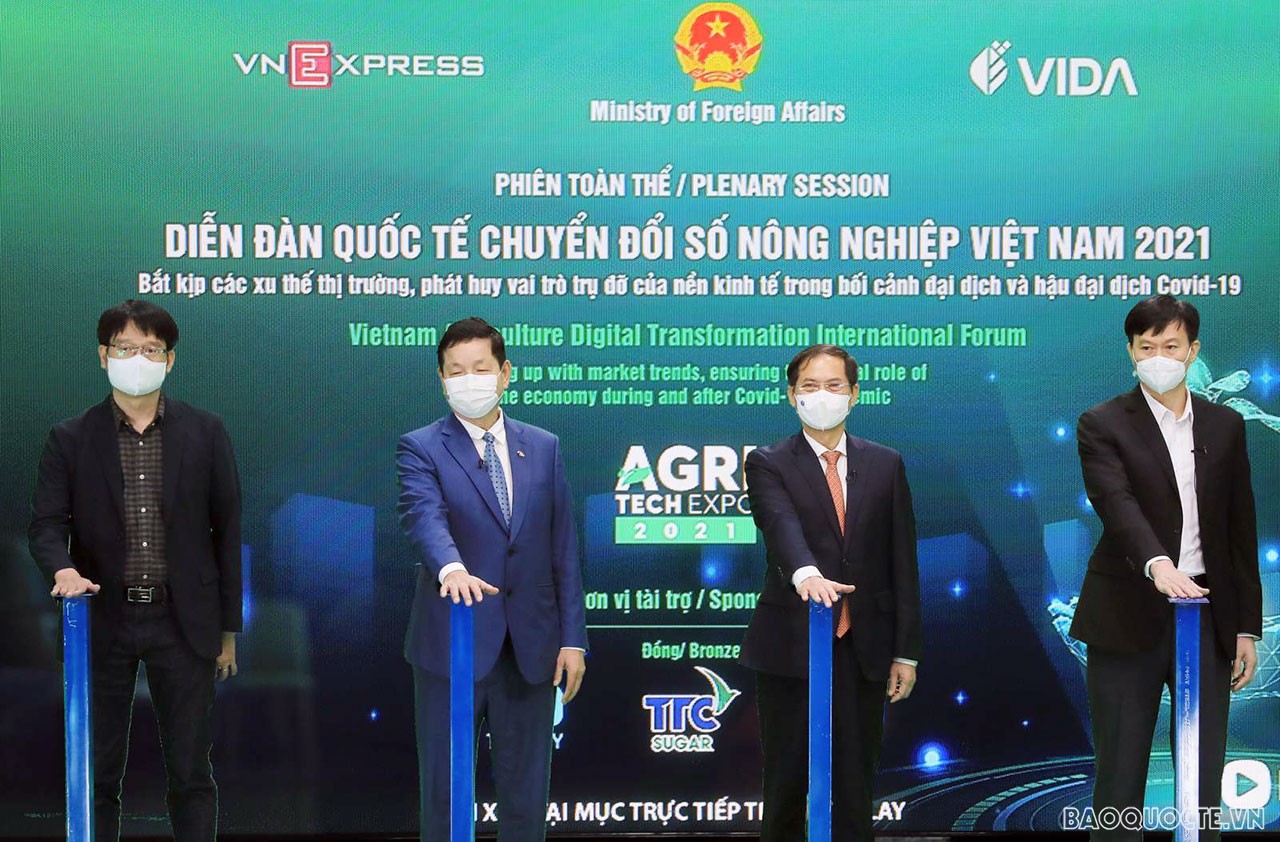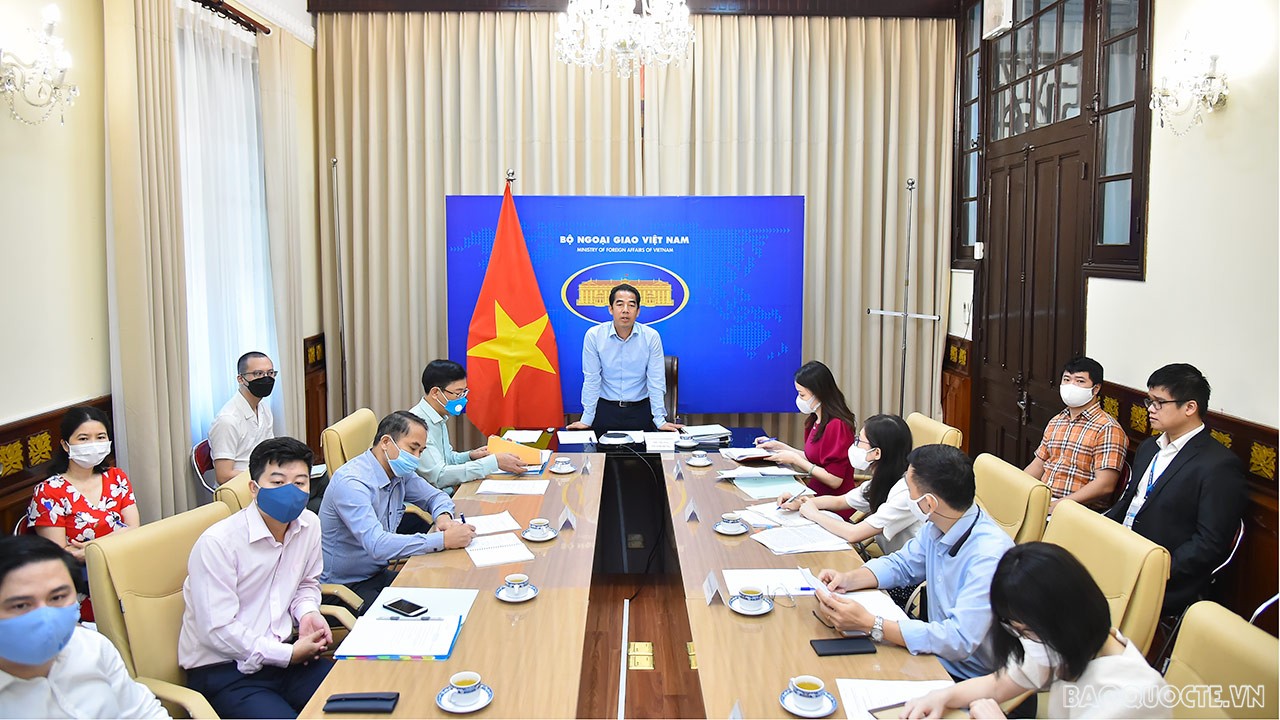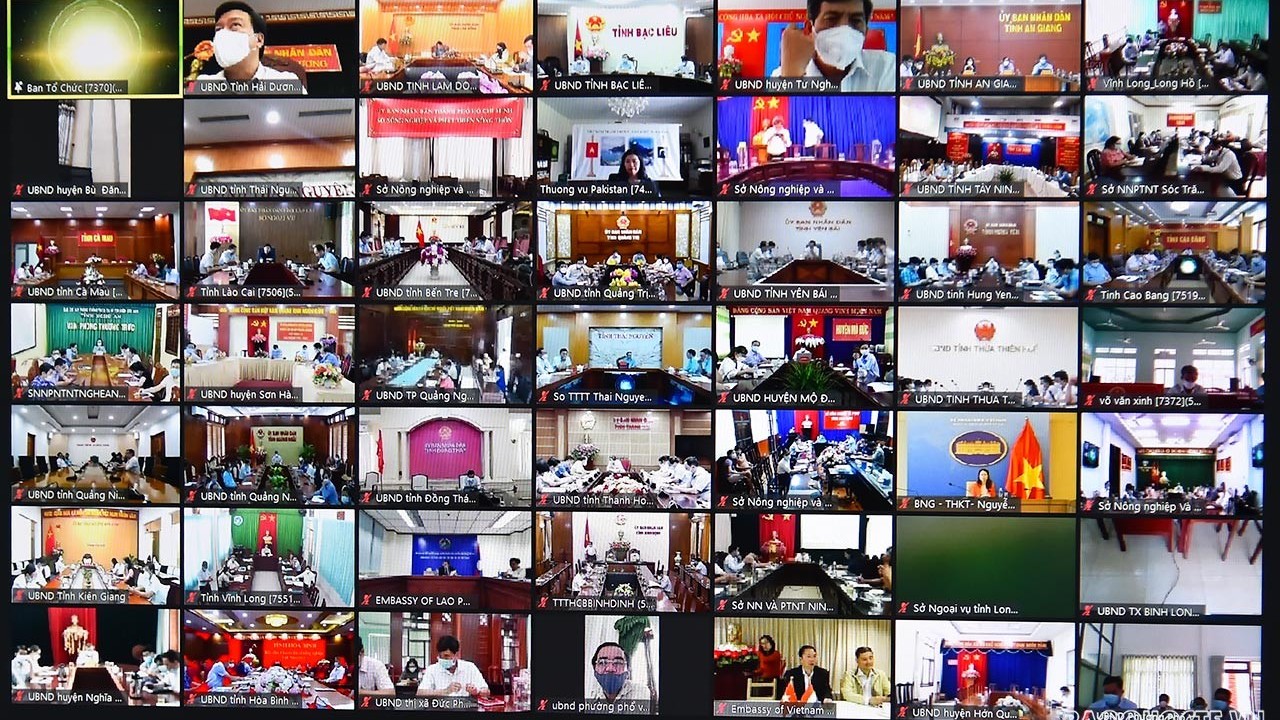
Local diplomacy has achieved many important results, contributing to the overall success of the country's foreign affairs
Latest
 |
| The launch of Vietnam Agro Tech Expo 2021 in the framework of the Vietnam Agriculture Digital Transformation International Forum 2021 on September 16, 2021. (Photo: Tuan Anh) |
Deputy Minister, please kindly share with us the results local diplomacy has achieved since the 19th National Conference on Local Diplomacy?
This year's National Conference on Local Diplomacy bears the theme of “Innovating and enhancing diplomacy and international integration in support of localities”. Since the 19th National Conference on Local Diplomacy (August 2018), local-level foreign relations have achieved remarkable gains, contributing to the overall success of the country's diplomacy and local socio-economic development goals.
Despite the impact of the COVID-19 pandemic over the past 2 years, with a cohesive, flexible and breakthrough approach, local-level diplomacy was able to overcome difficulties, gradually translating the Resolution of the 13th National Party Congress into reality. The results thus far have been quite well-rounded.
To elaborate, between 2019 and 2021, Vietnamese localities signed more than 200 international agreements with foreign partners - localities, organizations or foreign enterprises - to strengthen cooperation and expand markets for locally-made products.
Many local networking, trade and promotion activities were organized under new formats and with innovative contents. Examples include “Connection for Development Forum 2021: Seizing new opportunities for localities and businesses”, Viet Nam Agriculture Digital Transformation International Forum 2021, Meet Europe 2021...
Cultural diplomacy is also actively conducted in conjuncion with political and economic diplomacy. “Then” singing was named on the list of Intangible Cultural Heritage of Humanity in 2019, and Nui Chua Biosphere Reserve and Kon Ha Nung Plateau of Viet Nam were recognized as a World Biosphere Reserve in 2021. These titles have helped bring the image of Viet Nam, its people and culture closer to friends around the world.
Localities are also an important contributor to the success of defending Viet Nam’s sovereignty over its border, territory, seas and islands. The border lines and the system of national border markers are both well-maintained while public order and security are ensured. Communication and information for, and protection of fishermen and fishing vessels saw good coordination and implementation between the Ministry of Foreign Affairs, competent authorities and localities. This has created a solid “homefront” for Viet Nam’s political and diplomatic struggles, and helped muster the support from the international community for Viet Nam’s positions.
Consular affairs and works related to overseas Vietnamese are also highlights, especially since the outbreak of the COVID-19 pandemic. The localities have worked closely with the Ministry of Foreign Affairs and other competent authorities to perform citizen protection in a timely manner, through providing support at border checkpoints and openings on the mainland, organizing more than 700 flights to repatriate more than 200,000 Vietnamese citizens and providing support for citizens stranded abroad.
Deputy Minister, how would the new contents in foreign policy implementation after the 13th National Party Congress affect the orientation of the Ministry of Foreign Affairs in supporting local diplomacy efforts?
The 13th National Party Congress clearly identifies the pioneering role and position of diplomacy in “creating and maintaining a peaceful and stable environment, making use of external resources for national development, and raise the profile and prestige of the country”. The document of the Congress also specifies the goal of “building a comprehensive and modern diplomatic service with three pillars: Party diplomacy, State diplomacy and people-to-people diplomacy”.
The comprehensiveness of diplomacy is more evident in how the focus is placed on directly serving localities, businesses and each citizen, in addition to macro-level political tasks as usual. In the context of the COVID-19 pandemic, diplomacy for development is extremely relevant, contributing to each locality's efforts in maintaining development and heading towards recovery.
Some key lines of action in supporting local-level foreign relations moving forward are as follows: Firstly, to step up and advance the role of economic diplomacy in local foreign relations. Following the successes in vaccine diplomacy, economic diplomacy will be an important catalyst for localities in restoring production and business, and promoting recovery. Specifically, this includes the sharing of information and experience in reopening the economy from other countries, the search for new ways for foreign trade in goods, and the attraction of investments for economic development and social welfare.
Second, to advance those elements in line with the general development trajectory of the world, to accurately and rightly meet the needs and wishes of the localities such as digital economy development, e-commerce, high-tech agriculture, clean energy...
Third, to focus on harnessing each locality’s innate strengths, and at the same time continue to seek and expand access into new, promising markets for local products; and to call on the international community to join hands in realizing inclusive and sustainable development.
 |
| Deputy Foreign Minister To Anh Dung chaired an online meeting between the Ministry of Foreign Affairs and the external affairs agencies of 63 provinces and cities on October 5, 2021. (Photo: Tuan Anh) |
The 20th National Foreign Affairs Conference will convene on December 13th. What are the new elements of this Foreign Affairs Conference, Deputy Minister?
The 20th National Conference on Local Diplomacy was held after the 13th Party Congress in order to deploy the new orientations for foreign affairs, in which localities and businesses are placed at the center. The Conference is an important occasion to bring together localities, Central ministries and services, Vietnamese representative agencies abroad and international partners to evaluate the results achieved in local-level foreign relations, and together propose measures to strengthen collaboration in and enhance this line of work going forward.
The first new element is the format of organization. Due to COVID-19, the conference will be held in a hybrid format between virtual and physical attendance, to both meet epidemic prevention regulations and maximize efficiency to the event.
The next new element is the genda. This year, the 20th National Foreign Affairs Conference will hold the roundtable “Connecting Diplomatic Corps and Foreign Business Associations with Vietnamese Provinces and Enterprises”. This event will be attended by Vietnamese provincial leaders, Vietnamese Ambassadors and Consul-Generals around the world, representatives of foreign embassies and trade offices in Ha Noi, foreign business associations in Viet Nam, and a number of major Vietnamese corporations and enterprises. This is an opportunity for the delegates to share their experience and discuss concrete measures to enhance support for Vietnamese localities in promoting international integration for socio-economic development. The discussion will focus on key focus for implementation in the upcoming stage, such as market expansion, investment promotion, and the harnessing of external resources to overcome difficulties caused by the COVID-19 pandemic and move towards comprehensive recovery and development, among others.
Third, for the first time, on the occasion of the Conference on Local Diplomacy, the Ministry of Foreign Affairs will collaborate with the Ministry of Industry and Trade to organize an exhibition of Vietnamese brands in order to promote signature Vietnamese products to delegates at home and abroad. This will help businesses in seeking buyers for their products.
In addition, as part of the Conference, the Ministry of Foreign Affairs will organize separate discussions for Vietnamese localities to engage with Vietnamese Ambassadors and Consul-Generals, and foreign delegates to further delve into matters of common interest.










